Diego Maradona just yelled an anti-gay slur in the middle of the World Cup
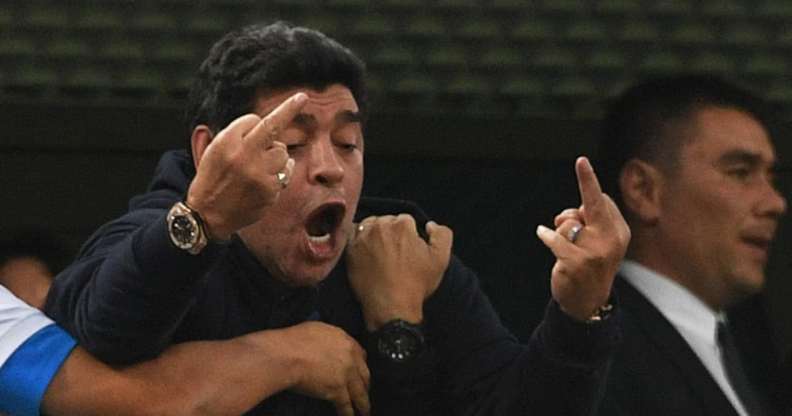
Diego Maradona gives the middle finger and yells “puto” (OLGA MALTSEVA/AFP/Getty)
Diego Maradona, widely considered to be the best footballer in history, is facing criticism after yelling an anti-gay insult on live TV.
The Argentinian legend celebrated his side’s winner against Nigeria last night (June 26) by giving the middle finger with both hands and yelling “puto” in the direction of other fans.
The word – which means “faggot” in Spanish – has already stirred controversy during the World Cup, with the Mexican Football Federation being fined around £7,600 by FIFA last week after fans used “puto” in their homophobic chants.
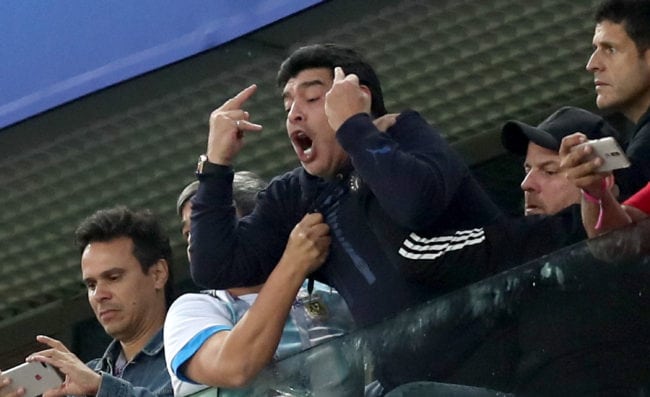
Maradona is a legend across the footballing world (Alex Morton/Getty)
This was after a World Cup qualification campaign in which Mexico was fined 11 times because of the term.
Maradona’s beloved team has also been censured, with Argentina fined £80,000 after fans were found to have got involved “in fights, throwing objects and homophobic and insulting chants.”
The 57-year-old, who won the World Cup in 1986 as his country’s captain, faced condemnation online after last night’s incident, with many fans accusing FIFA of a double standard after Mexico’s punishment.
Yo @FIFAWorldCup Maradona called a group of fans puto, What are ya going to do about it?
— Francisco Zenteno (@ZentenoDPaco) June 26, 2018
Maradona showing what a classy guy he is by giving the Nigerian fans the bird whilst shouting ‘puto’ which is a derogatory word for homosexuals. He really is a monumental twat
— WAFC Memories (@stefanbildstrup) June 26, 2018
Some supporters also expressed frustration with viewers who applauded Maradona’s actions.
Maradona will go down well with Putin. Puto a homophobic slanderous word . Yet only the ” bird” salutes are commented on
— Fraser Munro (@frasermecu) June 26, 2018
For the record, Maradona yelled out “puto!” in that bird shot, which in Spanish means “f-ggot.” But HURR DURR GOAT HILARIURRRRRR retweet retweet retweeeet
— Chris Joseph (@byChrisJoseph) June 26, 2018
Nigerians were also called “Puto” by Maradona? I’ve lost my respect in him! Was a very big fan of his. FIFA pls look into this. #saynotoracisminfootball
— Ola Jo (@virgodoveoflove) June 26, 2018
Last year FIFA implemented a new procedure giving referees the authority to abandon matches if homophobic chants do not cease.
Under the new procedure, referees have the authority to pause the match, with a tannoy announcement warning fans against discriminatory language.
If it doesn’t stop, the match can be suspended or even abandoned entirely.
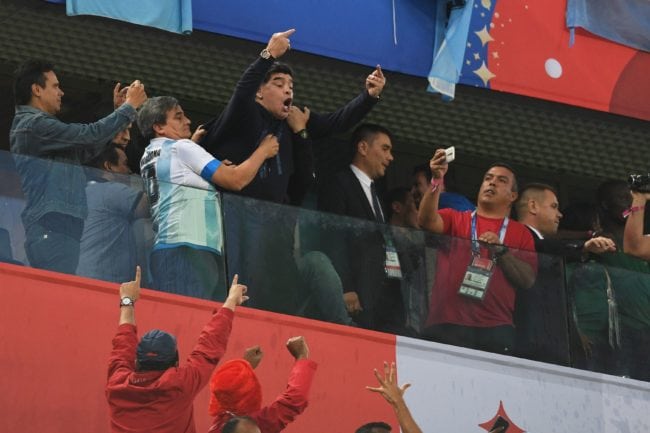
Maradona was being watched by thousands in the stadium and millions on TV (OLGA MALTSEVA/AFP/Getty)
However, this procedure was not deployed at either the Mexico v Germany match or Argentina’s 3-0 defeat against Croatia.
A gay football fan was hospitalised in Russia with brain injuries after a vicious attack ahead of the World Cup.
There have been few other reports of anti-gay violence during the tournament, which is nearly two weeks old, but LGBT people in Russia have voiced their fears that the relaxed policing towards the community will end after the World Cup.
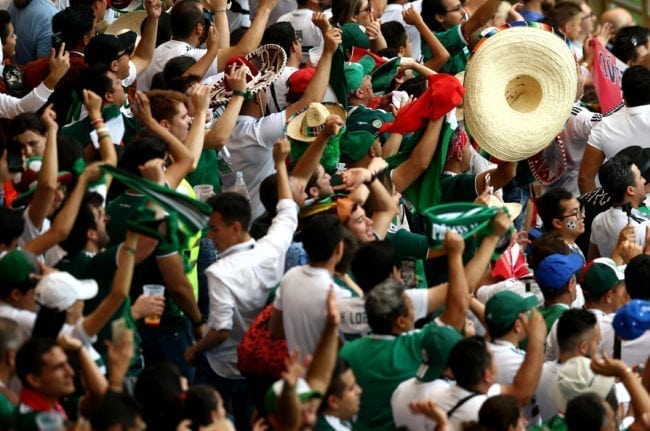
Mexico fans celebrate (Jan Kruger/Getty)
The head of the Russian LGBT Sport Federation, Aleksandr Agapov said authorities have been relaxed in applying the country’s “gay propaganda” laws during the tournament.
Hate crimes against LGBT people have doubled since Russia created the 2013 legislation, which prohibits “propaganda of non-traditional sexual relationships” towards minors.
Football fans including England supporters have been able to bring rainbow Pride flags into stadiums so far – which was promised before the tournament by FIFA and the Russian Football Union.
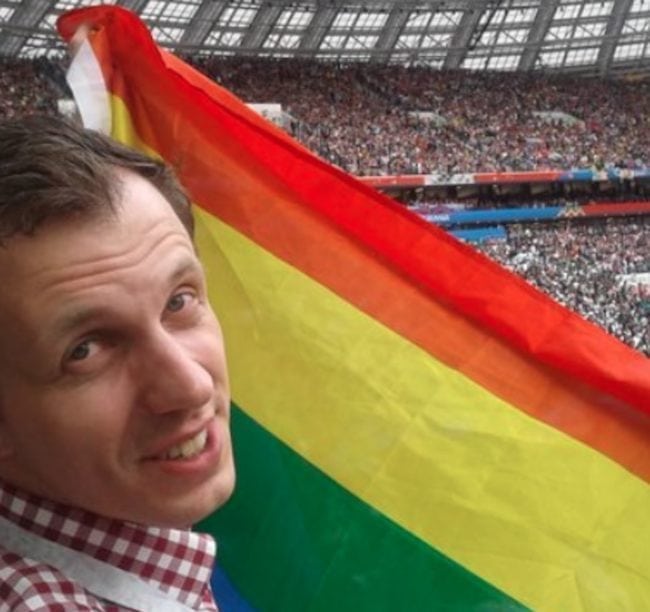
Alexander Agapov with his flag
But Agapov said that he was unsure if the World Cup would have any lasting legacy, adding that authorities were making the issue one of “hospitality” rather than human rights.
He said: “In a way it is very good that Russia shows its opportunity, its possibility to be so open and inclusive but for me as an LGBTI person it is a huge question whether we will have a positive legacy of the World Cup when the World Cup is over.”

